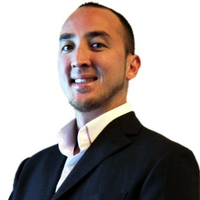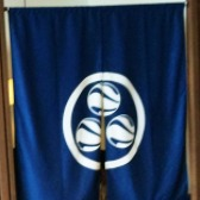How Old Is Too Old to Start a Business? In Japan?
Around 2 years ago, I said to my wife, “I’m thinking about starting a business in Japan to help other technology businesses.” She looked at me and basically said in Japanese, “Are you crazy!? You’re 38 years old, we have two small children, and we finally feel settled in Japan.” After a few glasses of wine, a few days of deep discussion, and a few ‘pretty please’s, we set off to start PIPELINE Japan - Delivering Real Results for Businesses in Japan. This wasn’t the first time we had ventured off into entrepreneurship, and she has always been supportive of all my endeavors, so I consider myself a pretty lucky guy. I wanted to share my experience in the hopes that others will also take on the challenge of starting a business.
The Formation Phase:
As far back as I can remember, my summer holidays and weekends during my youth were spent at my father’s business in downtown LA. His office was at the St. Vincent Jewelry Center, which was an area where most people would be uncomfortable walking at night and was scary for a little kid even during the day. My father was a fourth generation jeweler from Japan, and he had started a jewelry manufacturing business designing and making jewelry for companies like Macy’s, Nordstrom, and many other well-known shopping mall brands in the US. His office was like a beat-up auto mechanic’s garage, with all sorts of devices and machines inside which he used to craft his art. During my 8th grade summer, my father very persistently “invited” me to work in his office, and soon after I started helping him by sweeping the floors and learning how the jewelry was made.
(Startup Tip: Got an itch to make stuff? Check out DMM Make Akiba, MONO, Fabcafe, Garage Sumida, or MakersBootCamp)
Later, during my high school and university years, I actually learned how to do the entire process of hand designs with wax, create molds, cast all types of metals, and eventually create jewelry from start to finish. My mom still has a few pieces I created for her birthdays. #LoveyamomWhen I turned 16, I got my first real part-time weekend job selling MCI Global Long Distance Telephone cards at the entrance of a 99 Ranch Supermarket in Tustin, CA. This was my first taste of doing sales. I would set up a table with an MCI tablecloth, then add pamphlets, sign-up sheets and pens. My mission was to approach anybody and everybody trying to enter the supermarket, and my pitch would be something like “Would you be interested in saving money on your long distance calls?” I was motivated and determined to sell as many cards as I possibly could. I wasn’t paid an hourly wage or salary but was rewarded based on a 100% commission program. For a 16-year-old kid looking to pay his car payments and insurance, it was a dream job of working my own schedule, being my own boss, and getting my first taste of #entrepreneurship.At 20, I decided to move to Japan to find the “roots” of my Japanese heritage (3/4 Japanese & 1/4 Irish), and though I didn’t know it at the time, it was one of the best decisions of my life. I will never forget my parents reaction when I told them about my decision to move. Their argument against it was that they had moved away from Japan to the US, so why the hell did their son need to move back? They basically gave up when I sold my car and purchased a plane ticket to Japan.I originally landed in Osaka with a suitcase, Japan Rail Pass, and a mission to see as much of Japan as possible. I eventually made my way to Tokyo and found a job in IT support. It was 1999, better known as the dot-com bubble. I had various IT jobs as a consultant at UBS Warburg, Goldman Sachs, and General Motors. After a few years, I moved into the data storage world as a technical consultant for EMC Japan, Veritas Japan, and Symantec Japan, gaining a ton of experience and many friends in the field. The benefits from my time with these firms still exist today as some of my #PipelineJapan advisors are my former managers, Japan country managers, and senior executives from these companies.
The Validation Phase:
In 2005, I decided to move back to the US with my soon-to-be wife to help out the family jewelry business. I moved back only to find that family business wasn't doing so well and that I had to find other options if I wanted to support my new family. I had been saving my money during my 6 years in Tokyo and felt a calling to start my own business. I decided to try out a new business and build an e-commerce jewelry site called Happy Jewelry Company (HJC).
(Startup Tip: Many people (including me) spend their valuable startup funds on things like trademarks, patents, and legal fees early on. Stop. Validate your market and try to get your sales going before you spend your valuable resources. A wise man & marketing Jedi knight once said, "sales fixes everything") @GuyKawasakiHJC was dedicated to selling jewelry to Japanese customers out of Los Angeles. A few months of setting up the ecommerce site and zero sales had passed before I decided to start another business as a technical consultant for SMB`s. My consulting gigs would focus on helping businesses with their data storage backups, disaster recovery, and pretty much anything IT. Fast forward one year later, with definitely not enough SEO or marketing and basically bankrupt, I had one paying consulting customer with my company N1corp for 2 hours a week and a gross total of $500 in online HJC sales. I was basically struggling to keep food on the table, let alone manage two businesses. I had to find work ASAP.After another 6 months of resumes and job interviews, I was lucky to find a job with a storage company called NetApp to support Japanese customers in a place called RTP - Research Triangle Park in Raleigh, North Carolina. Absolutely beautiful area, lots of bright and lovely people, and definitely recommended for a visit.
(Startup Tip: Looking for a new challenge? Interested in working at a startup? - Check out Justa, Techinasia, Wantedly, Angelist, or Hyr.asia)
The Pivotal Phase :
Remember 2007? This was the year of the subprime housing crisis, and it was also the year my wife and I purchased our first home. The crisis was a terrible moment in history, and many lives were ruined. It was shortly after this that we learned my father had been taking out business loans due to the decline in the business. The new digital age of buying jewelry and gems online made the business for a traditional jeweler quite difficult. Buying mobile phones and tablets became more important than buying jewelry, and the entire jewelry industry was gravely affected. It was one of those ‘wtf’ moments… My father was forced to close his 4th generation business and sell the house they had just paid off after 30 years to clear the debt. After the dust had settled I invited them to North Carolina, where the housing prices were affordable and they could put a down payment on a new home. Plus, it was just a nice area to call home.In 2009, my folks moved to RTP, and we decided that it would be a great opportunity to start a restaurant. The RTP area had a huge population of tech folks from California but very little in terms of options for good food. My grandmother had previously started a Japanese restaurant in San Diego, and my father had some experience working as a teppanyaki chef during his first few years in the LA area after leaving Japan. The restaurant could be managed by my folks and would hopefully generate enough income for them to survive their retirement. I spoke with a lot of people including the startup business center at NCSU, and the general consensus was that nobody in North Carolina would want authentic Japanese street food. Nevertheless, we felt confident that people would enjoy our food and concept and our doors opened in 2010 after 1 year of planning, testing, certifying, and designing the entire concept from start to finish.The business is still running today, with Mom & Dad in charge of operations, so check it out for some authentic Japanese food in the RTP area. http://www.teriyakin.com #Teriyakin
(Tip: Use services like Crowdworks, MakeLeaps, Lancers, TopTal, Fiverr , SmartHR, MerryBiz, or Upwork to utilize valuable business tools and consultants while keeping your startup costs down.)
On March 11th, 2011, the earthquake and tsunami in Japan devastated an entire region with many lives lost and destroyed. Around this time, there was an opportunity for me to move to Japan with my existing company. My wife has family in the Ibaraki area, so we decided to make the move back to Japan. Shortly after our move, I had the privilege of helping a startup company called Violin Memory, and I was one of the first boots on the ground to help establish the Japan business. I was blessed to stay with Violin Memory till IPO in 2013. From there I moved on to helping another company called Scality, again with the mission of establishing the business, but this time as a consultant and the owner of PIPELINE.
The Growth Phase:
I’ve just celebrated my 40th birthday and recently completed the official transition from PIPELINE LLC to PIPELINE K.K (Inc.) (or Kabushikigaisha). Things look and feel a little different at 40, but I can definitely say this is just the beginning.
(Startup Tip: Use the TOSBEC or BDCT for free incorporation advice. I can personally recommend it.)
We are a small business with a dedicated team of salespeople, engineers, and advisors helping technology businesses from around the globe to accelerate their business in Japan. Like most, I look up to the greats like Steve Jobs, Guy Kawasaki, Mark Zuckerberg, Hiroshi Mikitani, Masayoshi Son and man y more and can only imagine the war stories that they would have to shae.The business is still very much in its infancy with many concerns and bills to pay, and we’re in no way out of the weeds. Sometimes I look back at all the things that could have, would have, or should have happened, and all of the "it’s impossible" comments I received when starting up. There were lenty of times in the past when I thought, “Am I doing this right?” “Should I keep going? Should I give up?” “What if it doesn't work out?” Five years ago, I never would have imagined that I would be starting a business in Japan, and I’m truly grateful for all the support I have received and for evey passing moment that I have the privilege of #beingmyownboss. You simply can’t plan for everything that may or may not happen. Nobody could forecast the dot-com bubble, housing crisis, bankruptcy, or starting a business in Japan.As an entrepreneur, I think the fear never ends and the best way to handle it is to change the fear into #passion. It's the uncomfortable gut feeling that helps you grow as an entrepreneur or business owner; without the fear, you simply stop learning and growing. The hardest part of being an entrepreneur is taking the first leap of faith, but it’s the only way to fly.


